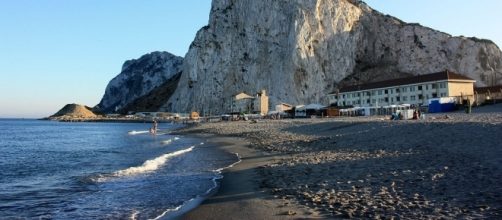Gibraltar is a Brittish Overseas Territory located in the South of the Iberian Peninsula. The picturesque rock is located on the Mediterranean coast and shares its northern border with Spain, and has a population of around 33,000. Gibraltar is of great strategic importance: its location at the exit of the Mediterranean sea to the Atlantic ocean and nine miles away from the African continent make it an essential military spot and trade route checkpoint. This strategic importance has been both a blessing and a curse since it caused tensions between Great Britain and Spain for centuries.
A former Brittish colony
Gibraltar is one of the last remnants of the former Brittish empire, that once ruled a quarter of the world's land and population. After the dissolution of colonial empires, the Gibraltarians expressed on many occasions their will to remain a Brittish Territory.
Today, Gibraltar is a self-ruling entity under Brittish sovereignty. The small city-state recognizes the Brittish monarch Queen Elizabeth II as a head of state and the United Kingdom handles Gibraltar's military defense and foreign affairs. The Gibraltarians have full Brittish citizenship and rely heavily on Brittish economic assistance. However, Gibraltar has its own elected parliament and government, laws, and tax system.
Tensions with Spain
Great Britain captured Gibraltar from Spain in 1704. during the War of the Spanish Succession. In 1713 the territory was definitively ceded to Britain by the king of Spain in the treaty of Utrecht. In 1963, Spain and the UN called for the decolonization of Gibraltar. The United Kingdom refused to let go and in 1967 a referendum in the city resulted in a massive vote in favor of staying Brittish (12,138 votes in favor of Brittish sovereignty versus only 44 in favor of Spanish sovereignty).
This angered the Spanish dictator Francesco Franco who decided to shut the borders with Gibraltar in 1969 and to withdraw the Spanish workers from Gibraltar, who constituted a third of the city's workforce. The British city found itself isolated and in a deep economic crisis until the borders were reopened in 1985.
Brexit
As a British territory, Gibraltar is a part of the European Union.
After the reopening of the borders, Gibraltar thrived under the banner of the EU. First of all, EU membership calmed the tensions with Spain thanks to the common law, single market, and economic interests. European justice also solved many cases between the two countries. Gibraltar's economy also benefited from access to the European single market and from financial support from the EU.
Unsurprisingly in the Brexit referendum, Gibraltar voted 96% in favor of remaining in the EU. However, Gibraltar is bound to the whole of the UK willing to leave, and Gibraltarians are afraid of being denied access to the single market and of Spain reclaiming the territory once Britain had left the EU.
It seems that the European council is reviving the century-old issue about Gibraltar in order to pressure the British government in the process of the Brexit negotiations.
According to The Guardian, the guidelines issued by the EU about negotiations with the UK stated that any future trade agreement between the EU and the UK will not include Gibraltar without Spanish consent. This will be an opportunity for Spain to claim sovereignty or at least co-sovereignty over Gibraltar. Like the future of the UK after Brexit, the fate of Gibraltar remains uncertain.


